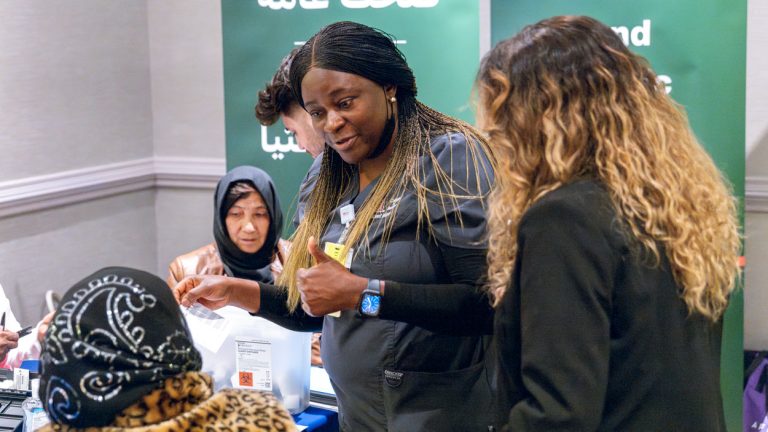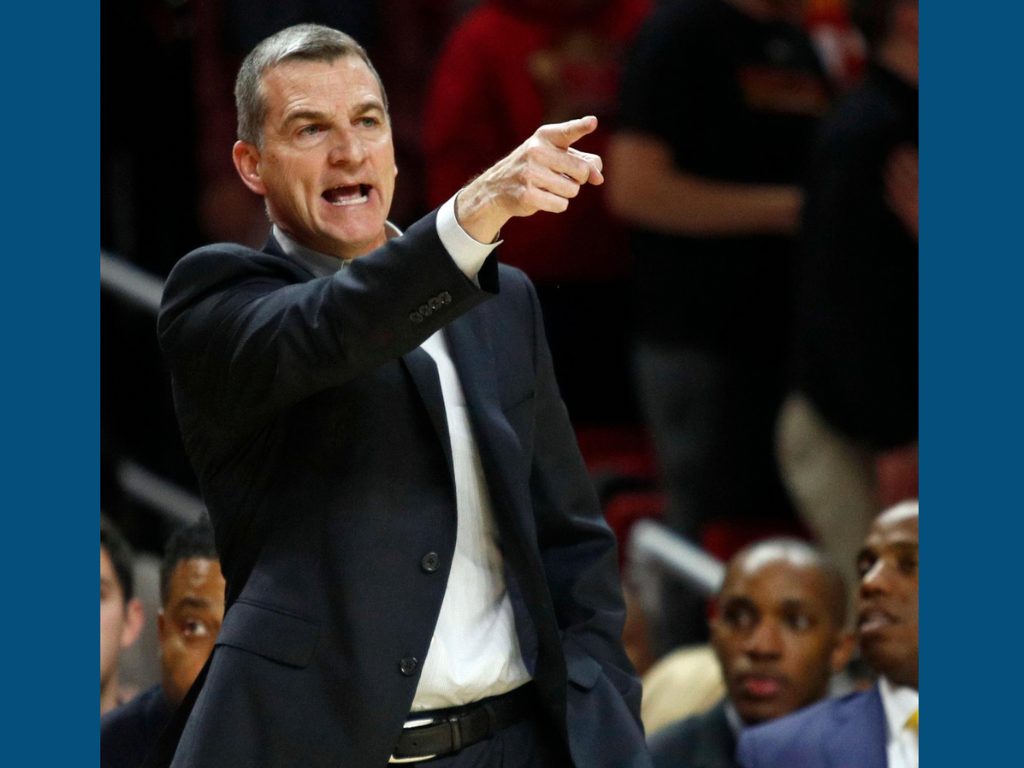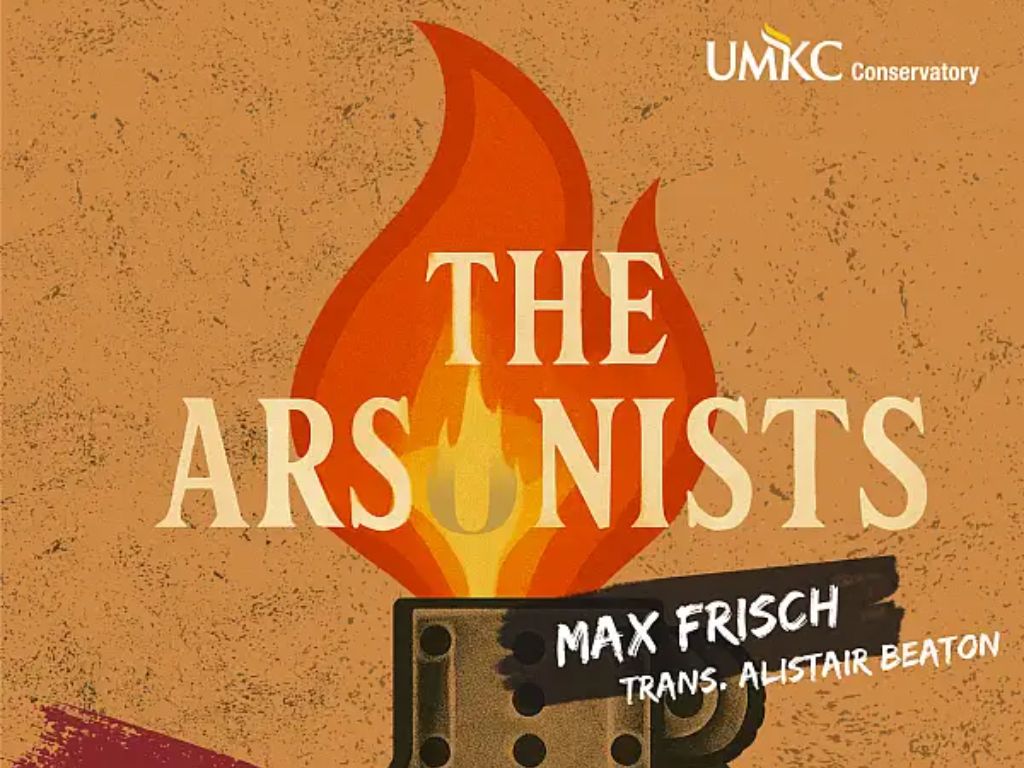by Heather Riske | May 8, 2024
Although the clients of Project Compassion were initially skeptical of the turkey tacos, it didn’t take long before they came back for seconds and thirds.Just before digging in, the group at the Belleville, Illinois-based nonprofit, which offers food, clothing, toiletries, therapy and housing referrals to low-income and unhoused individuals in the community, had recently watched a cooking demonstration by a group of students in the College of Nursing at the University of Missouri–St. Louis.
The students had spent several semesters working with the clients as part of the new Community-Based Clinical Education program, designed to show students how health care is delivered in a variety of settings outside of the traditional acute care hospital experience. As they got to talking with clients over the course of the program, the students realized how many relied on fast food as a major part of their diet. For their final project in the program, they chose to demonstrate small, sustainable ways to make healthier eating choices.
“It’s greasy food, food that you know you’ll be hungry 30 minutes later,” says one of the students, Brittney Bounds, who graduated in December. “We felt like this was something that we could do to just let them know that you don’t have to be a vegetarian or completely change your diet – just make small substitutions like limiting fast food or substituting beef with turkey. We didn’t do a lot of education because we were more so connecting with them as individuals and not just teaching them. We were more so on their level and interacting with them. We ate together, and we fellowshipped. When we were done, we gave them a survey, and the results were that they are more likely to prepare food at home, and that was the goal.”
Bounds and her classmates were just a few of the nursing students who have been connecting with the community through the College of Nursing’s Community- Based Clinical Education program. In building the program, director Sheila Grigsby, an associate professor and the Dean’s Fellow for Community Engagement, sought to better integrate community health into key courses throughout the BSN program each semester. Whereas BSN students were previously only introduced to community and public health concepts in their last semester in the program, the CBCE program intentionally exposes them to nursing in community-based settings throughout their coursework.
All students in the traditional undergraduate BSN program participate in this program, which aims to provide students with unique opportunities to work with an interdisciplinary team of health care providers at various community organizations throughout St. Louis, including Affinia Healthcare, Girls Incorporated of St. Louis, PreventEd, Safe Connections and more.
“Most people spend the majority of their time outside of a hospital setting,” Grigsby says. “There are so many other things that nurses can do outside of being an acute care nurse. We’re able to expose our students to the wide variety of things that nurses can do. If they can, through this experience, understand the importance of building relationships with community organizations but more importantly with our clients, I think that we’ve achieved what we set out to do. Because that’s how you achieve wellness. That’s how you achieve community satisfaction – through being able to connect with people where they work, live and play, not when they’re in a stressful situation in the hospital. You can make a lifelong impact when you are interacting with them in their own personal settings.”








